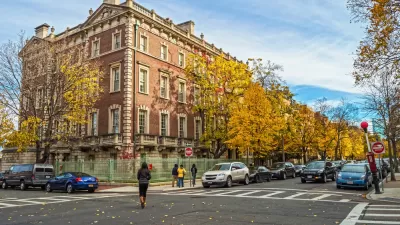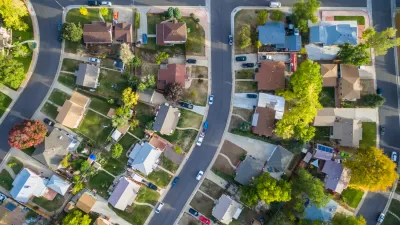California took the U.S. Department of Housing and Urban Development's Affirmatively Furthering Fair Housing (AFFH) rule and ran with it. Fully realizing the goals of the AFFH in California will require more work, according to a recent analysis.

Writing for the Policies for Action blog of the Robert Wod Johnson Foundation, Paavo Monkkonen, Michael Lens, and Moira O’Neill provide analysis of California’s implementation of the Affirmatively Furthering Fair Housing (AFFH) rule.
The AFFH is a provision of the Fair Housing Act adopted by the Obama administration, gutted by the Trump administration, and reinstated by the Biden administration. California codified the AFFH into state law in 2018, with, according to the authors, the potential to advance fair housing goals at the state level than the federal level.
“A state AFFH mandate may have more potential to 'replace segregated living patterns with truly integrated and balanced living patterns' than the federal rule because states have the unique authority to directly intervene in local planning and zoning, rather than just withholding funding,” according to the authors.
According to the analysis of the authors, California’s AFFH implementation has a long way to go, however: “Only a dozen of the nearly 200 jurisdictions in Southern California required to submit housing plans had submitted such plans by October 2021, and inadequate AFFH sections in these plans have been a major challenge.”
The "bumpy" implementation of the AFFH rule in California has become apparent in the most recent Regional Housing Needs Assessment process, mandated for local jurisdictions every eight years.
“We read the [California Department of Housing and Community Development (HCD] review letters and found that most jurisdictions’ housing elements either lacked an AFFH analysis section or lacked several required components specified in the April 2021 guidance. Most jurisdictions’ AFFH programs also did not contain sufficient detail. Notably, HCD recently rejected Los Angeles’ housing plan because its AFFH programs were insufficient (Planetizen coverage of the news), despite experts having praised the housing plan for going beyond state guidance to accurately project development potential and propose necessary rezoning.”
According to the conclusion of the authors, described in much more detail in the source article, linked below, the state’s AFFH implementation is insufficient to achieve its own stated goals.
FULL STORY: Affirmatively Furthering Fair Housing in California: A Bumpy Rollout or a Flawed Approach?

Planetizen Federal Action Tracker
A weekly monitor of how Trump’s orders and actions are impacting planners and planning in America.

San Francisco's School District Spent $105M To Build Affordable Housing for Teachers — And That's Just the Beginning
SFUSD joins a growing list of school districts using their land holdings to address housing affordability challenges faced by their own employees.

The Tiny, Adorable $7,000 Car Turning Japan Onto EVs
The single seat Mibot charges from a regular plug as quickly as an iPad, and is about half the price of an average EV.

Seattle's Plan for Adopting Driverless Cars
Equity, safety, accessibility and affordability are front of mind as the city prepares for robotaxis and other autonomous vehicles.

As Trump Phases Out FEMA, Is It Time to Flee the Floodplains?
With less federal funding available for disaster relief efforts, the need to relocate at-risk communities is more urgent than ever.

With Protected Lanes, 460% More People Commute by Bike
For those needing more ammo, more data proving what we already knew is here.
Urban Design for Planners 1: Software Tools
This six-course series explores essential urban design concepts using open source software and equips planners with the tools they need to participate fully in the urban design process.
Planning for Universal Design
Learn the tools for implementing Universal Design in planning regulations.
Smith Gee Studio
City of Charlotte
City of Camden Redevelopment Agency
City of Astoria
Transportation Research & Education Center (TREC) at Portland State University
US High Speed Rail Association
City of Camden Redevelopment Agency
Municipality of Princeton (NJ)





























